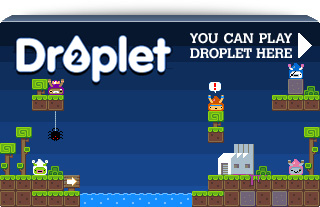Posts Tagged ‘optimisation’
-
4k Game Contest – Some useful tips
18th Feb 20097 Ok so after the embarrassment of my first post on this subject, I wanted to present some findings that may help you out on your quest for smaller SWF sizes. More importantly, I know for a fact these all worked for me!
Ok so after the embarrassment of my first post on this subject, I wanted to present some findings that may help you out on your quest for smaller SWF sizes. More importantly, I know for a fact these all worked for me!For those who didn’t read the previous post: I’ve been working on my entry for the 4k Game Competition, and have found the following information during the course of my coding:
Keep Event Listeners out of the constructor
I have a whole bunch of init stuff in my constructor (creating game graphics, setting up variables, etc) and at the end I kicked off the game by starting up the main events (keyboard, mouse, etc). But by moving the event listeners to their own function, and calling that function from the constructor, it reduced the size of the SWF.
If you know the size of something, use it! Avoid references where possible
When creating a Rectangle I passed in the width and height of a bitmap by reference (bulletBitmap.width). By removing this and passing in the actual known width of the bitmap (6) it saved a massive 20 bytes from the ActionScript code.
Before: bulletRect = new Rectangle(0, 0, bulletBitmap.width, bulletBitmap.height);
After: bulletRect = new Rectangle(0, 0, 6, 6);
Here’s another example where being explicit saves bytes:
Before: fullRect = stage.getRect(stage);
After: fullRect = new Rectangle(0, 0, 550, 400);
This saved us 6 bytes.
Make Bitmaps Transparent
I create a bitmap the size of my Stage to hold the game background in. It looks like this:
gridBitmap = new Bitmap(new BitmapData(550, 400, true, 0x0));
Now I don’t need this bitmap to be transparent (the 3rd parameter) as it sits at the bottom of the display list. But by setting the transparent parameter to “false” it increased the size by 3 bytes.
Even default values take-up space
Object instantiation is expensive in AS3, so it’s best to pre-calc objects you need in your main loops at the start. However who would have thought that the following:
zeroPoint = new Point(0, 0);
takes up 1 extra byte than:
zeroPoint = new Point();
Even though 0,0 are the defaults for the Point object. Every byte counts!
Avoid Array references in for loops
I have a loop in the game that checks through a pool of baddies (standard Array containing a custom Object that extends a Sprite). I started out doing it like this:
for (var a:int = 0; a < baddiePool.length; a++)
and then …
baddiePool[a].value = newValue;
But by pulling out the array element first at the top of the loop, then referencing that, I saved a massive 33 bytes in total:
ba = baddiePool[a];
ba.value = newValue;Smaller than a ternary
Thanks to Kevin Luck for this one 🙂 If you need to run a standard if/else on a value where it could be equal to zero then it can be shortened to:
x = lx || Math.random() * 550;
In the code above, x = lx unless lx = 0, in which case set x to Math.random() * 550. This is 3 bytes smaller than using a ternary/if-else equivalent.
Hopefully the above will help out those also entering the competition. Feel free to comment and add more tips!
-
4k Game Contest – and a word about ternary operations in AS3
18th Feb 2009 Edit: Thanks to Kevin Luck for pointing out a flaw with the code in my original post (there was an extra assignment taking place, which caused the byte count to increase). Remove that and ternary will match if/else on a bytes-used basis. I’ll keep this post up here regardless, just ignore everything from this point on 🙂
Edit: Thanks to Kevin Luck for pointing out a flaw with the code in my original post (there was an extra assignment taking place, which caused the byte count to increase). Remove that and ternary will match if/else on a bytes-used basis. I’ll keep this post up here regardless, just ignore everything from this point on 🙂
Read More
Hire Us
All about Photon Storm and our
HTML5 game development services
Recent Posts
OurGames
Filter our Content
- ActionScript3
- Art
- Cool Links
- Demoscene
- Flash Game Dev Tips
- Game Development
- Gaming
- Geek Shopping
- HTML5
- In the Media
- Phaser
- Phaser 3
- Projects
Brain Food



